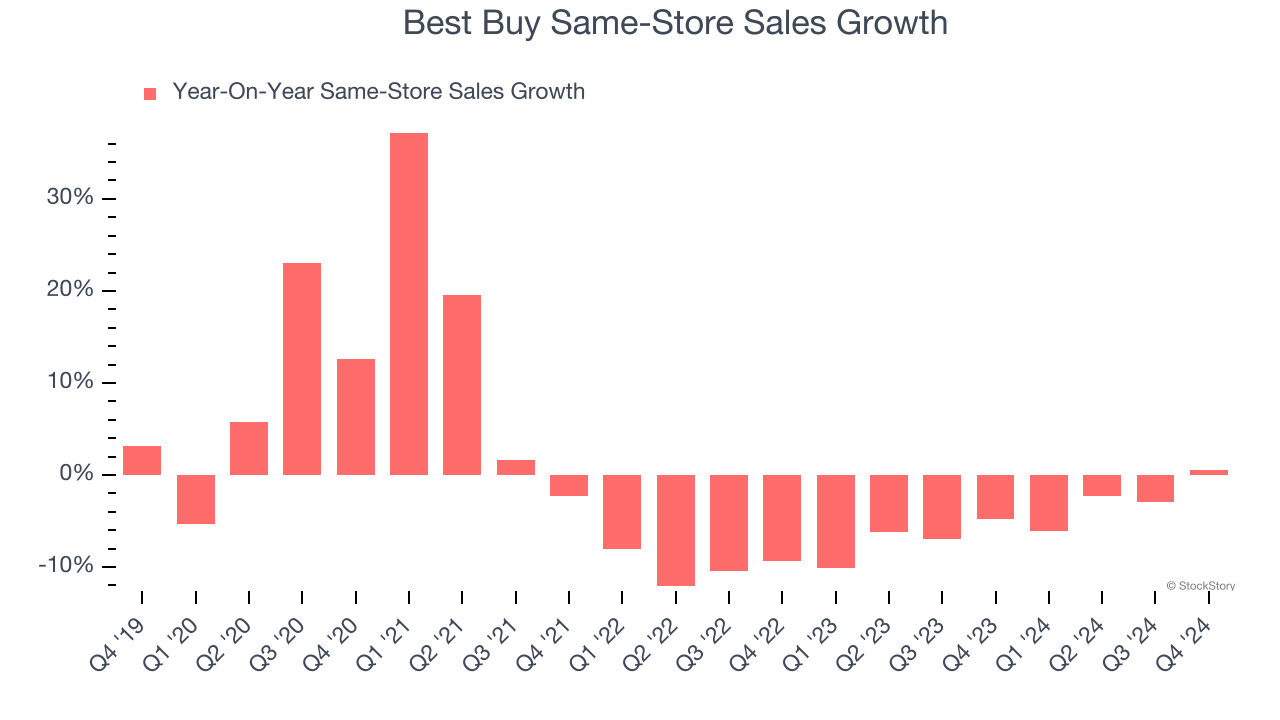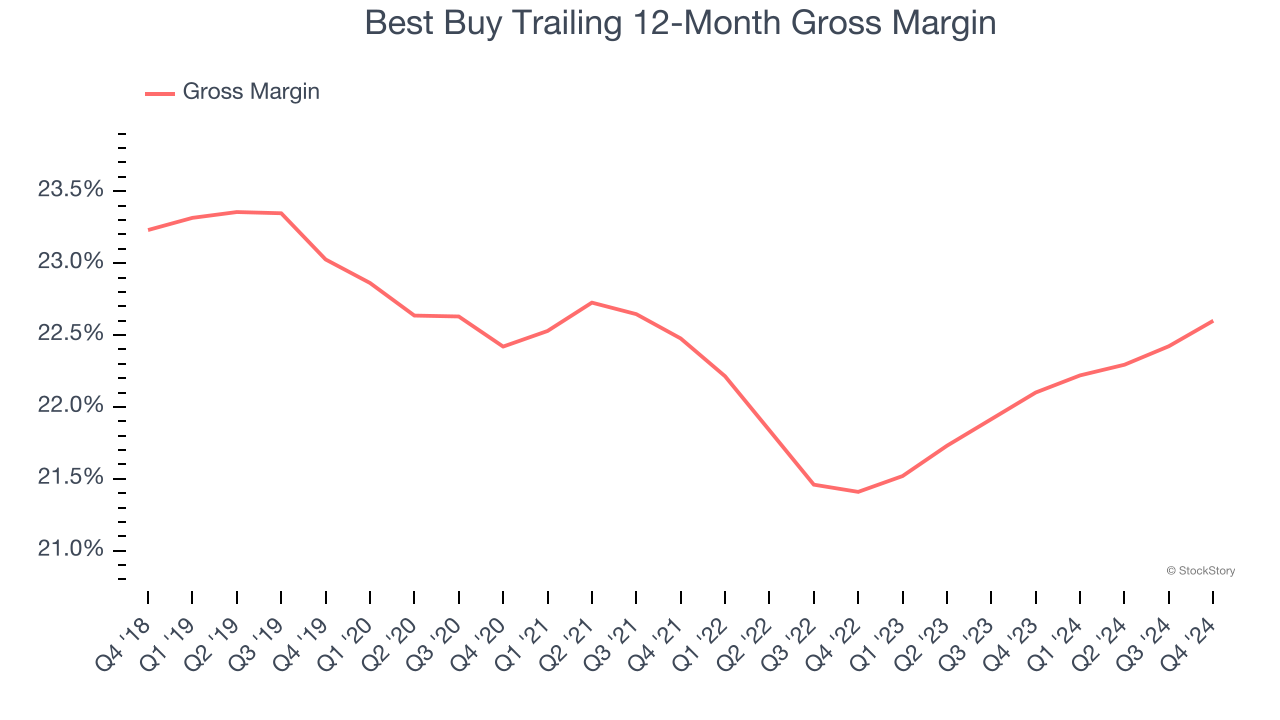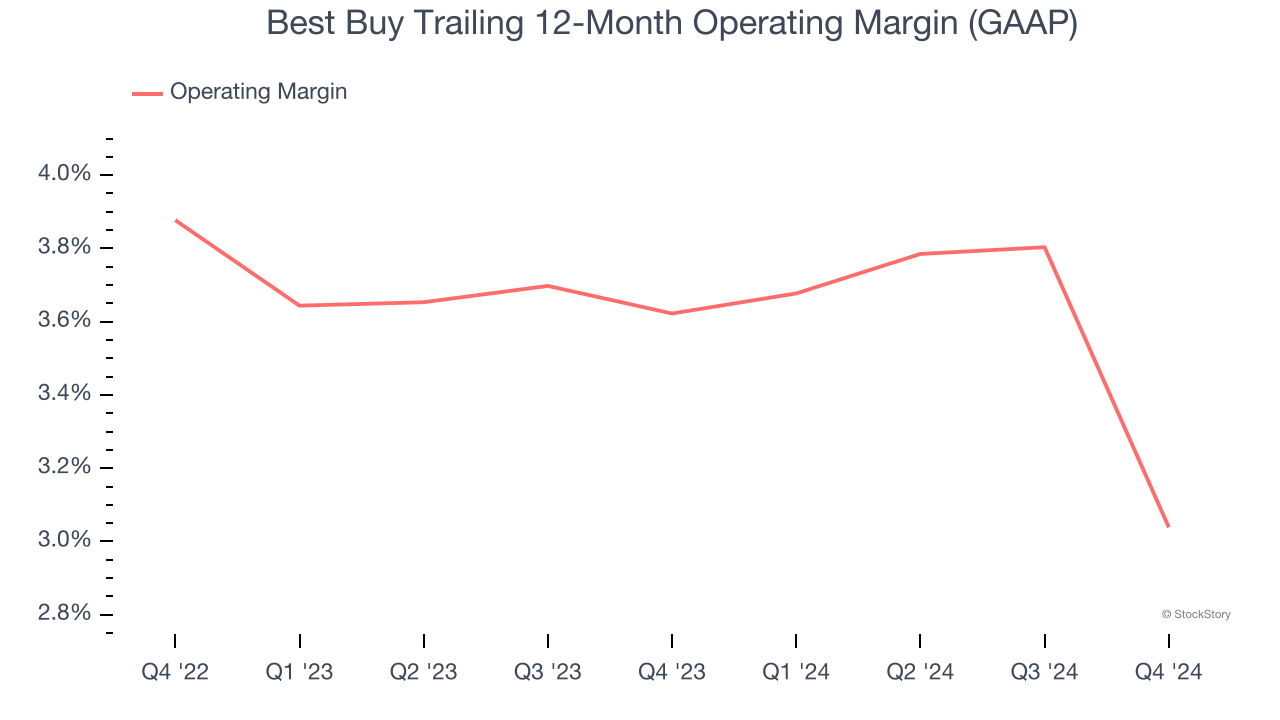
Over the past six months, Best Buy’s stock price fell to $72. Shareholders have lost 17% of their capital, disappointing when considering the S&P 500 was flat. This may have investors wondering how to approach the situation.
Is there a buying opportunity in Best Buy, or does it present a risk to your portfolio? Get the full breakdown from our expert analysts, it’s free.
Why Is Best Buy Not Exciting?
Despite the more favorable entry price, we're sitting this one out for now. Here are three reasons why you should be careful with BBY and a stock we'd rather own.
1. Shrinking Same-Store Sales Indicate Waning Demand
Same-store sales is an industry measure of whether revenue is growing at existing stores, and it is driven by customer visits (often called traffic) and the average spending per customer (ticket).
Best Buy’s demand has been shrinking over the last two years as its same-store sales have averaged 4.9% annual declines.

2. Low Gross Margin Reveals Weak Structural Profitability
At StockStory, we prefer high gross margin businesses because they indicate pricing power or differentiated products, giving the company a chance to generate higher operating profits.
Best Buy has bad unit economics for a retailer, signaling it operates in a competitive market and lacks pricing power because its inventory is sold in many places. As you can see below, it averaged a 22.3% gross margin over the last two years. That means Best Buy paid its suppliers a lot of money ($77.66 for every $100 in revenue) to run its business. 
3. Weak Operating Margin Could Cause Trouble
Operating margin is a key profitability metric because it accounts for all expenses necessary to run a store, including wages, inventory, rent, advertising, and other administrative costs.
Best Buy was profitable over the last two years but held back by its large cost base. Its average operating margin of 3.3% was weak for a consumer retail business. This result isn’t too surprising given its low gross margin as a starting point.

Final Judgment
Best Buy isn’t a terrible business, but it doesn’t pass our bar. After the recent drawdown, the stock trades at 10.8× forward P/E (or $72 per share). This valuation is reasonable, but the company’s shakier fundamentals present too much downside risk. We're pretty confident there are more exciting stocks to buy at the moment. We’d recommend looking at the most entrenched endpoint security platform on the market.
Stocks We Would Buy Instead of Best Buy
The market surged in 2024 and reached record highs after Donald Trump’s presidential victory in November, but questions about new economic policies are adding much uncertainty for 2025.
While the crowd speculates what might happen next, we’re homing in on the companies that can succeed regardless of the political or macroeconomic environment. Put yourself in the driver’s seat and build a durable portfolio by checking out our Top 5 Strong Momentum Stocks for this week. This is a curated list of our High Quality stocks that have generated a market-beating return of 176% over the last five years.
Stocks that made our list in 2020 include now familiar names such as Nvidia (+1,545% between March 2020 and March 2025) as well as under-the-radar businesses like the once-small-cap company Exlservice (+354% five-year return). Find your next big winner with StockStory today.





